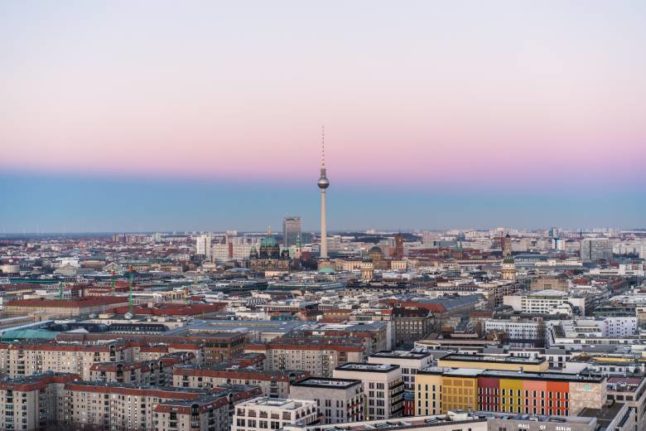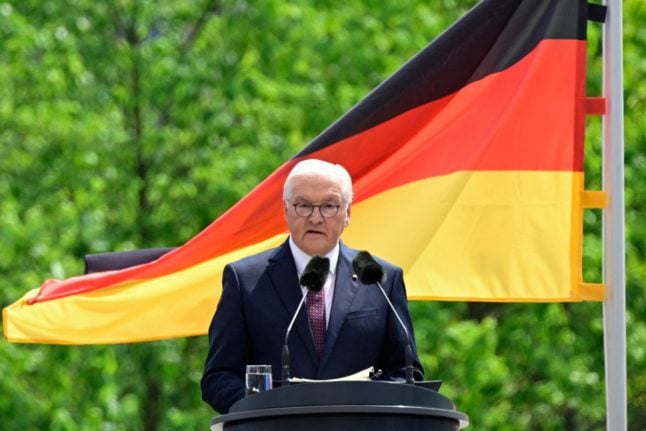“For far too long in Germany we have minimised our colonial past, understated colonial injustices and the crimes committed,” said Stefanie Remlinger, the Green leader of Berlin’s central borough of Mitte.
During the renaming ceremony in the middle of the capital’s “African Quarter”, Remlinger called on participants to “look not just to the past, but the future, as well”, and to improve the teaching of colonialism in schools.
Built in the early 20th century, before World War I, when Germany presided over a sizeable colonial empire, Berlin’s “African Quarter” has stood as a symbol of the failure to look closer at colonial injustices.
‘Symbol’
After years of protest from various campaign groups, “Nachtigalplatz” (Nachtigal Square) was renamed “Manga-Bell-Platz”.
The explorer Gustav Nachtigal, who lent his name to the square, played a key role in the 19th century in the creation of German colonies in west Africa – Togo and Cameroon – and Namibia, which was known as German South West Africa.
His name has been replaced by that of Emily and Rudolf Douala Manga Bell, the heads of the royal family of the Douala people from Cameroon.
Leader of the resistance against the expulsion of the Douala people from their ancestral home, Rudolf was executed in 1914.
“The inauguration of this square… rehabilitates him 108 years after his execution in Douala,” said Victor Ndocki, Cameroon’s ambassador to Germany.
The royal couple’s descendant, the Douala king Jean-Yves Eboumbou Douala Manga Bell, who came from Cameroon for the occasion, told AFP the new name was an “extraordinarily important symbol of recognition”.
Princess Maryline Douala Manga Bell, Rudolf’s great-granddaughter, who also travelled to Berlin, said the move could alert “young Germans to what happened before these young people were born”.
A few hundred metres (yards) from the square, “Luederitzstrasse” (Luederitz Street) was renamed after Cornelius Fredericks, a resistance fighter from the Nama people in Namibia, who died in a camp in 1906.
Genocide
A trader from the port city of Bremen, Adolf Luederitz was long celebrated as a “pioneer of colonisation” and the founder of German South West Africa. He is now accused of having deceived the local Nama people by buying their lands for a pittance.
During the ceremony, Namibia’s ambassador to Germany Martin Andjaba said the name change should be “a tool supporting this process leading to reconciliation for the living generation and those to come”.
“Engaging these colonial legacies should not separate us but bring us together,” he said, noting the twinning of the two towns of Luederitz in Germany and Namibia.
In Namibia, Germany was responsible for the massacre of tens of thousands of indigenous Herero and Nama people between 1904 and 1908.
Last year after long negotiations with the Namibian side, Berlin recognized the acts as a “genocide” and pledged to send development aid to support the indigenous groups.
However last month, Namibia asked to begin renegotiations on the terms of the agreement.
Despite Friday’s ceremony, many vestiges of colonialism are still to be found, such as Mohrenstrasse – the street of the Moors – in the centre of the capital.
For 25 years, campaigners from the black community have been lobbying to get rid of the name. Local authorities agreed a change in 2021, but a complaint was lodged against the move and a legal process is under way to determine the street’s fate.
Germany’s vaunted culture of remembrance in atoning for its World War II crimes is frequently cited as exemplary among modern nations.
However, campaigners argue that with its intense focus on the Nazi period and the Holocaust in particular, Germany has neglected to fully reckon with other dark periods of its past.



 Please whitelist us to continue reading.
Please whitelist us to continue reading.
Member comments